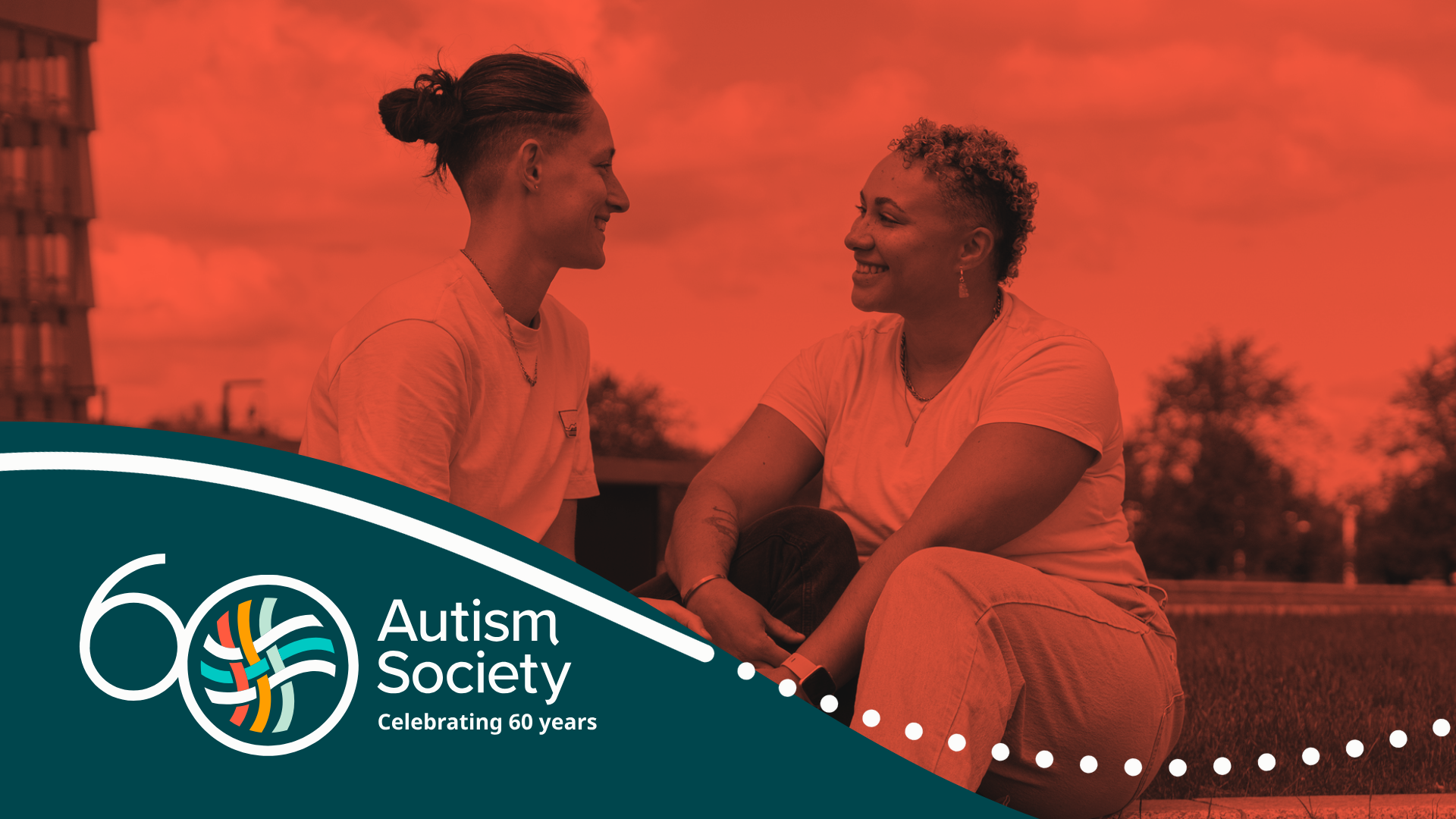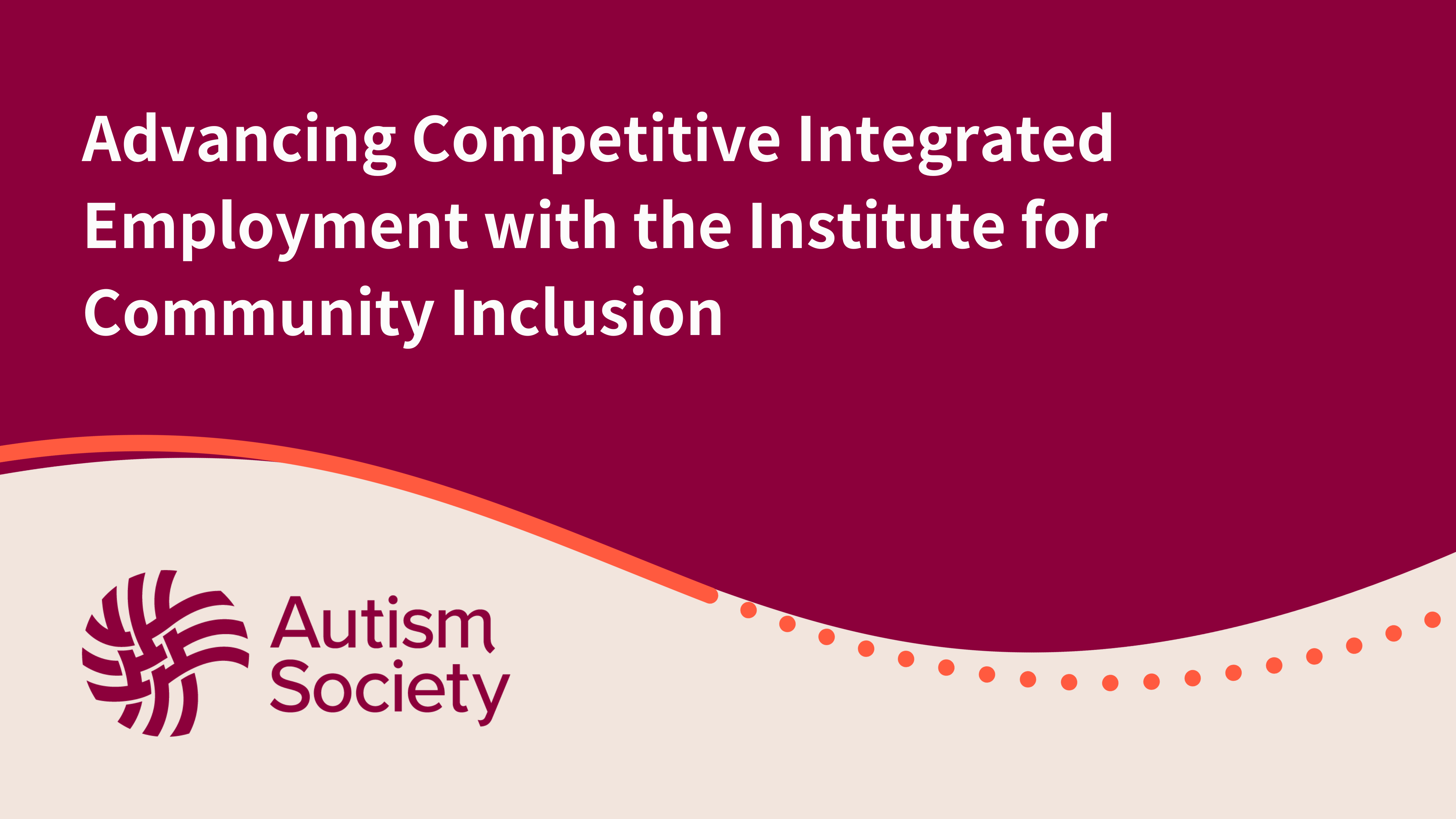
In this issue of Capitol Connection, find updates on the final days of the 117th Congress and preparations for the next Congress. In addition, a notice for a paid self-advocacy fellowship is included. Please use the Autism Society’s Action Center to urge your Members of Congress to support legislation and funding for the Autism community in this critical final month.
Lame Duck
Congress returned from Thanksgiving recess with less than a month to finish business of the 117th legislative Congress. The Autism Society is strongly advocating for the House and Senate to come to an agreement on the 12 annual appropriations bills that have increases for programs important to people with Autism and other disabilities. The Autism Society will also continue to urge Congress to act on bills to increase the SSI savings limit, pass the ABLE Age Adjustment Act, increase funding for Medicaid home and community-based services, and ban electric shock devices still being used at the Judge Rottenberg Center in Massachusetts. Bills to reauthorize Kevin & Avonte’s Law and Assistive Technology Act may get final approval. Continue to use the Action Center to educate Members of Congress on legislative issues important to the Autism community.
118th Congressional Leadership
The contours of power are taking shape several weeks after Election Day: Democrats will have a majority in the Senate in 2023 by a margin of one or two votes. Republicans have a majority in the House but with a narrow majority. Although nothing is finalized as official votes will be taken in January, here are the expectations for some leadership changes the Autism Society is monitoring:
- House Leadership
- Speaker: Kevin McCarthy (R-CA)
- Minority Leader: Hakeem Jefferies (D-NY)
- Democratic Whip: Katherine Clark (D-MA)
- Senate Leadership
- Majority Leader: Chuck Schumer (D-NY)
- Minority Leader: Mitch McConnell (R-KY)
- Committee Leadership
- Chair of Senate Health, Education, Labor and Pensions (HELP) Committee: Senator Bernie Sanders (I-VT) with Bill Cassidy (R-LA) as Ranking minority member
- Chair of the Senate Appropriations Committee: Senator Patty Murray (D-WA)
- Chair of the Budget Committee: Senator Sheldon Whitehouse (D-RI)
- Chair of the House Education and Labor Committee: Representative Virginia Foxx (R-NC) (if a waiver of Republican term limit rules is approved)
- Chair of House Energy and Commerce: Rep. Cathy McMorris-Rogers (R-WA)
- Chair of the House Judiciary Committee: Representative Jim Jordan (R-OH)
Please let policy team members know if you have information that might be helpful about a new Member of Congress elected from your state.
Law Enforcement Data
The Autism Society helped to garner co-sponsors for the introduction of the Data on Interactions and Accountability for Law Enforcement with Individuals with Disabilities (DIALED) Act, which was introduced on November 18th by Senator Bob Casey (D-PA) and five co-sponsors. This legislation would improve transparency by developing data collection to get an accurate representation of how people with disabilities are affected by interactions with law enforcement, including use-of-force and fatal interactions. The DIALED Act is the third bill in Casey’s Law Enforcement Education and Accountability for People with Disabilities (LEAD) Initiative, which also includes the Safe Interactions Act and the Human-services Emergency and Logistic Program (HELP) Act. The Safe Interactions Act would provide grants to enable non-profit disability organizations to develop training programs that support safe interactions between law enforcement officers and people with disabilities. The HELP Act would enhance state and regional 2-1-1 and 9-8-8 call systems, diverting some non-criminal emergency calls away from 9-1-1 and toward human services and mental health support agencies.
AACCENT ACT
On November 17th, Senator Casey along with 6 other co-sponsors, introduced the Augmentative and Alternative Communication Centers to Establish National Training Act or the AACCENT Act (S.2). The bill will support national training, technical assistance, and resource centers, to ensure that all individuals with significant expressive communication disabilities have access to the augmentative and alternative communication the individuals need to interact with others, in order to learn, work, socialize, and take advantage of all aspects of life. The Autism Society conducted numerous meetings with staff of targeted members of Congress to seek support for this important legislation.
Hearing on Transition & Mental Health
The Senate Health, Education, Labor, and Pensions subcommittee on Children and Families held a hearing entitled “Caring for Our Kids: Supporting Mental Health in the Transition from High School to College”. Witnesses included a high school senior from Pittsburgh and University leaders in mental health education. Senator Casey (D-PA) stressed that “students with disabilities should feel both academically and emotionally supported in their schools” and that the Bipartisan RISE Act would be very impactful for students with disabilities in transitioning to college. Senator Cassidy (R-LA) agreed that we must move the RISE Act forward as we currently have obstacles for students transitioning and must do all we can to prepare them to be future leaders. It was also mentioned that “in 2021 the average ratio of students to school counselors was 415:1 despite a recommended ratio of 250:1”. A few mental health packages have progressed through Congress and the Autism Society will continue to monitor through the Lame Duck.
Missouri in the News
ProPublica co-published an article with local newspapers in Missouri on sheltered workshops in the state. Their investigation uncovered that the 5,000 adults employed at Missouri’s 97 workshop locations have been there for decades without the opportunity to transition to competitive integrated employment. Read the full article for more.
Notice from ACL fellowship
The Self Advocacy Resource and Technical Assistance Center (SARTAC) is now accepting applications for fellows for a one-year self-advocacy project. Six fellows are chosen to complete projects that require 14 hours of work a week over a year with a compensation of $5,000. To learn more about the fellowship, SARTAC is holding a Zoom meeting on Thursday, December 1st, at 1 PM ET (Meeting ID: 324 815 633 and Call-in number: 1-929-436-2866). To apply, complete this online application.
Share:




